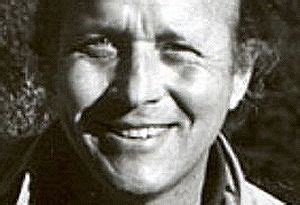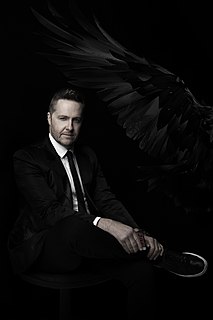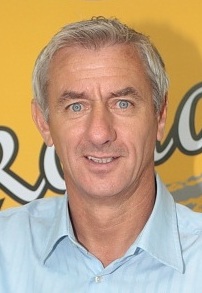A Quote by Charles Stross
Writers block: when I get it, it's because my subconscious spotted that I'd make a huge structural mistake in constructing a novel before my conscious mind became aware of it, and threw on the brakes. So I've learned not to sweat it: take two days off, then back up a chapter, read through, and try to work out why I'm suddenly uneasy about continuing.
Quote Topics
About
Aware
Back
Back Up
Became
Because
Before
Block
Brakes
Chapter
Conscious
Conscious Mind
Continuing
Days
Days Off
Get
Huge
I've Learned
Learned
Make
Mind
Mistake
Novel
Off
Out
Read
Structural
Subconscious
Suddenly
Sweat
Take
Then
Threw
Through
Try
Two
Two Days
Uneasy
Up
Why
Work
Work Out
Writers
Writers Block
Related Quotes
Meditation gives you two things: equanimity and creativity. And it does that by taking one from their conscious mind, where there's all that noise and chaos and so on, into the subconscious mind where there's quiet and where creativity emanates from. You have a mantra, and when you repeat it over and over again, all those thoughts go away because you shift them to that mantra. And then eventually that sound disappears, and then you're left not conscious or unconscious - you're left in this subconscious state, and by opening that up, first of all you get control of it.
If you are angry, why not try this. Write a letter. Pour out all of your feelings, describe your anger and disappointment. Don't hold anything back. Then put the letter in a drawer. After two days, take it out and read it. Do you still want to send it? I've found that anger and pie crusts soften after two days.
Cut like crazy. Less is more. I've often read manuscripts - including my own - where I've got to the beginning of, say, chapter two and have thought: “This is where the novel should actually start.” A huge amount of information about character and backstory can be conveyed through small detail. The emotional attachment you feel to a scene or a chapter will fade as you move on to other stories. Be business-like about it.
But what if I make a mistake?' Will asked. Gilan threw back his head and laughed. 'A mistake? One mistake? You should be so lucky. You'll make dozens! I made four or five on my first day alone! Of course you'll make mistakes. Just don't make any of them twice. If you do mess things up, don't try to hide it. Don't try to rationalize it. Recognize it and admit it and learn from it. We never stop learning, none of us.
Now we may have more preachers out there than we have drinkers. But a fellow told me a story one time about a man down in Kentuckywhere they make bourbon. And he said you can take a jigger or two jiggers and get by all right. But if you try to take the whole bottle why you have lost what you started with. So don't try to take it too quick. And don't try to do all of it at once. I don't do much promising. I tell what my goals are and then I try to wrap it up and put a blue ribbon on it and get it delivered. We say put the coonskin on the wall.
So it became in my mind a nine-carol service; an oratorio and orchestral concert all in one, but with narration. That's something I've learned about, because it's the story that keeps you in there. I wrote a libretto and I gave it to John Du Prez. We normally don't work in this fashion but I said off you go, and he went off for about three months. He brought me back this demo which blew my mind.
Usually I work out the plot before I start. This time I thought: Writers always talk about not knowing where a book is going - -I want to experience that, too. What I found out is that it's very interesting, but it takes much longer because you have so many false starts. You take wrong turns and you have to go back and start the whole chapter, or the whole section, from scratch.
Everything you've ever read of mine is first-draft. This is one of the peculiarities of the comics field. By the time you're working on chapter three of your masterwork, chapter one is already in print. You can't go back and suddenly decide to make this character a woman, or have this one fall out of a window.
I realised I'd been spoiled at Liverpool. We were used to winning. In Italy I grew up as a person. I didn't enjoy the football, mind. It was very defensive, but I became a better player because of the work I had to do around the box. Off the pitch, I learned about what to eat and what to drink to be successful, and I learned about life.
What I do is work for three or four years and then I take a year off, and then I come back again and work for three or four years and then take another year off. It is not about just working and then writing for a year. That is not how it is structured. It is about doing very conscious goal-driven activities for four years and then taking a year off in complete surrender to discover facets of myself that I don't know exist and exploring interests with no commercial value associated with them at all.






































